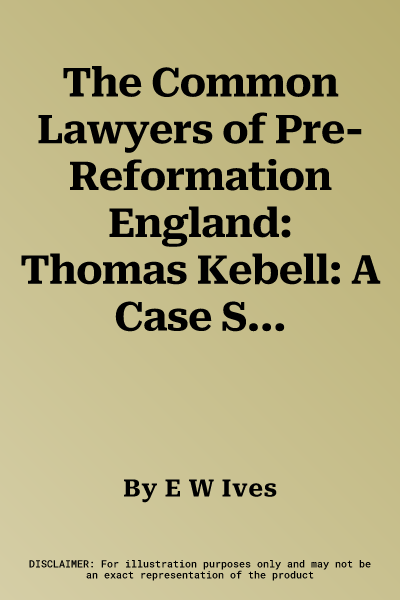E W Ives
(Author)The Common Lawyers of Pre-Reformation England: Thomas Kebell: A Case StudyHardcover, 31 May 1983

Temporarily out of stock
Free Delivery
Cash on Delivery
15 Days
Free Returns
Secure Checkout

Part of Series
Cambridge Studies in English Legal History
Part of Series
Cambridge Introduction to the History of Art
Print Length
560 pages
Language
English
Publisher
Cambridge University Press
Date Published
31 May 1983
ISBN-10
0521240115
ISBN-13
9780521240116
Description
Product Details
Author:
Book Format:
Hardcover
Date Published:
31 May 1983
ISBN-10:
0521240115
ISBN-13:
9780521240116
Language:
English
Location:
Cambridge
Pages:
560
Publisher: